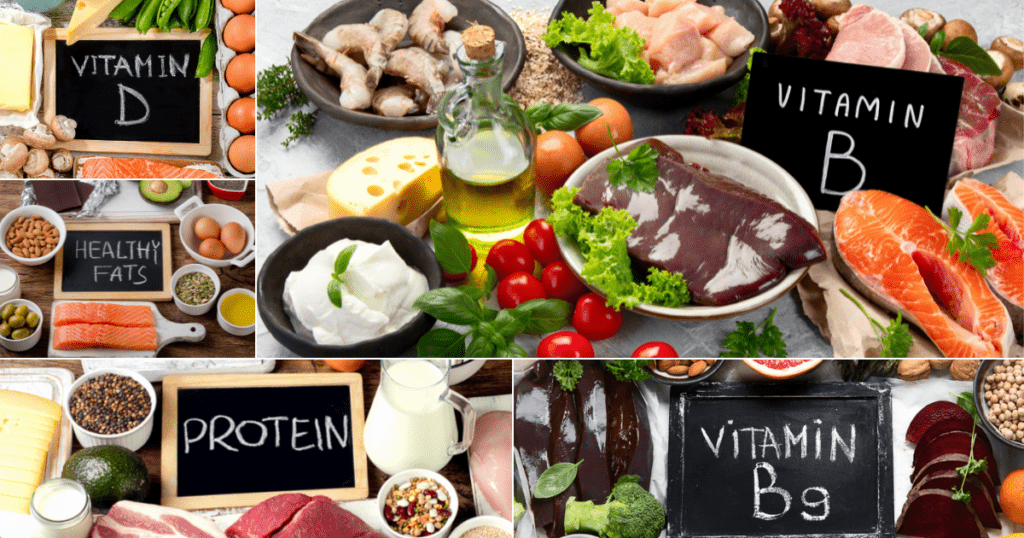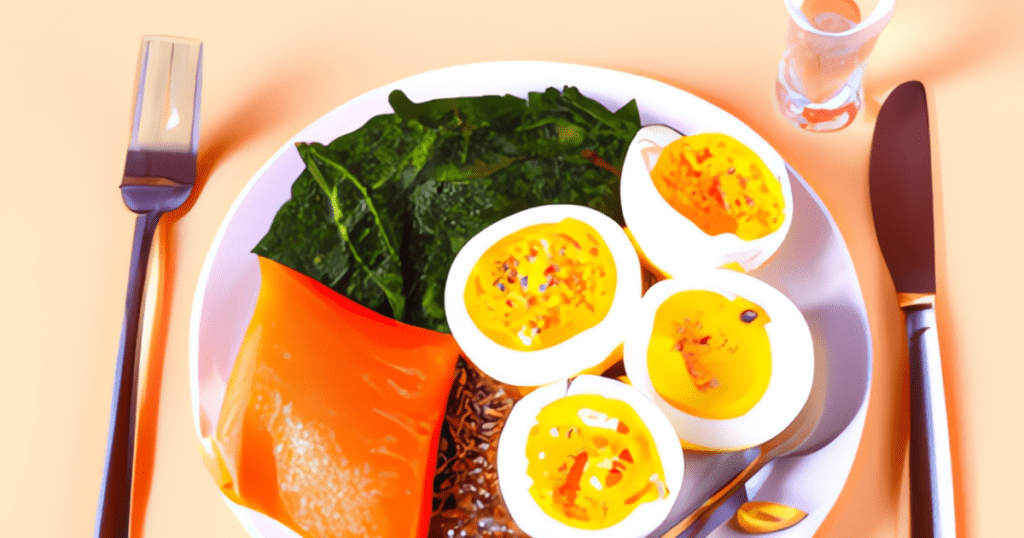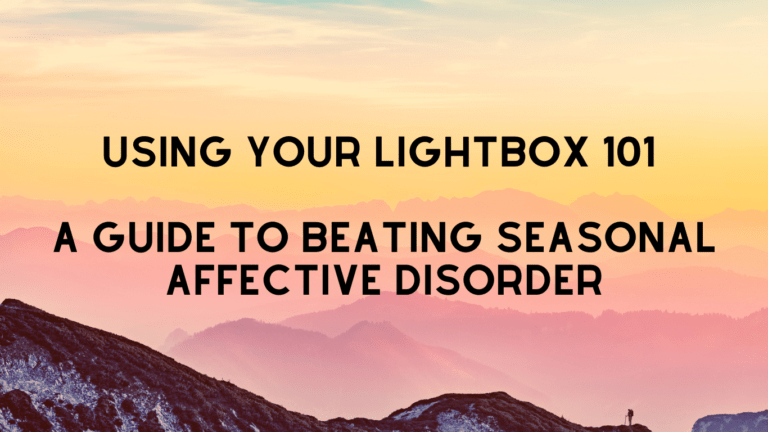The sky gets darker. The days get shorter. It’s cold outside and you’re stuck inside. It’s no wonder that so many people start feeling down in winter. Worse, when you’re cooped up inside and feeling low, you may turn to foods that simply don’t help. Foods like candy, fried foods, and sugar. The good news is that there are tasty foods that can help you beat the winter blues.
Vitamins and nutrients can help to boost your mood, support energy levels and improve overall well-being. Let’s take a look at some key vitamins and nutrients that can help ease winter blues.
Vitamins and Nutrients to Look Out For
When you’re at the supermarket and looking at your options, choose foods that contain:

Vitamin D
Vitamin D has been shown to prevent and reduce depression in some individuals. A deficiency in this vitamin is also linked to a number of illnesses and conditions including diabetes.
Vitamin D is also called the sunshine vitamin, and the best way to absorb this is from the sun, through the skin.
Vitamin B
The vitamin B complex can help your body manage stress more effectively and also boost your immune system.
- Vitamin B1 (thiamin)
- Vitamin B2 (riboflavin)
- Vitamin B3 (niacin)
- Vitamin B5 (pantothenic acid)
- Vitamin B6
- Vitamin B7 (biotin)
- Vitamin B9 (folic acid/folate)
- Vitamin B12
Folate (B9)
Folic acid which is also known as B9 is known to regulate blood flow and assist with sleep. Better sleep can lead to improved stress management and emotional control. Ultimately, this can result in better physical and mental health.
Omega-3 Fatty Acids
Fatty acids reduce inflammation in your body and your brain. Studies* have shown that people who experience winter depression are often low in omega fatty acids. Some are known as Essential Fatty Acids or EFA’s because you can only get them from your diet, your body cannot manufacture them..
Protein
Eating protein helps to regulate blood sugar levels, providing consistent energy throughout the day. Try to include some protein at every meal.
Add These Foods To Your Winter Shopping Cart
Vitamin D

Salmon – Wild salmon is higher in Vitamin D than farmed salmon but both have high levels of Vitamin D.
Herrings – an oily fish which you can cook or eat pickled or smoked.
Sardines and tuna – canned sardines and canned tuna are high in vitamin D. Make sure to buy ocean-wise fish if you can afford it.
Egg yolks, again if you can afford range-free then those are best.
Some mushrooms – once again wild is best. This is because mushrooms like humans absorb the vitamin through their skin during sunlight. Mushrooms contain D2 while D3 comes from animal foods. However some commercial mushroom processes use ultra-violet light during the growing process to simulate the sunshine.
Consider switching foods fortified with extra vitamin D such as milk, orange juice, your breakfast cereal, or margarine during the winter season.
Vitamin B group including B9 (folate)
Although there are several forms of vitamin B, most of them will be found in the same food item and some of these are already going to be familiar to you.

Salmon – Wild Salmon is a vitamin B powerhouse It contains B3, B12, B6, B2 and B1.
Nuts – Macadamia nuts, cashews, almonds, and sunflower seeds all make a good vitamin B snack or to incorporate into your cooking.
Eggs – the original superfood. Both the white and the yolk contain different members of the B family.
Beef Liver – one of your best souces for folate and gives you over 100% of your recommended daily allowance of B12,
Red meat, and especially some nice grass fed beef. Grass-fed beef contains over 70 percent of your recommended daily value for B3 and vitamin B6, and also has vitamin B12, vitamin B5, B1 and folate.
B12 can only be found in meat so if you are vegetarian or vegan you will need to supplement with some nutritional yeast. I have been told that this tastes like cheese so we could all add it to cooking or mix a couple of tablespoons into a salad to get the benefits.
Wholegrain and wholewheat bread are both high in B1, B7, and B9 but if your preference is for white bread though, French bread contains the highest levels of folate.
Green leafy vegetables like spinach or chard.
Switch from white rice to brown over winter. Brown rice is much higher in folate and proteins.
Foods fortified with extra B vitamins.
Omega-3 fatty acids

Some of the best sources of Omega-3 are found in fatty fish particularly the family known as cold-water fish. These are mackerel, herrings, salmon, tuna, and sardines.
Nuts and seeds such as walnuts, flaxseeds or chia seeds are high in Omega-3’s and you could also use their oils for cooking,
Were you ever forced to take Cod liver oil as a child? Well, our parents may not have known exactly why they were advised to give it to us but just one tablespoon of cod liver oil will give you over 100% of your essential EFA’s, vitamin A and vitamin D requirements per day. If you have ever found a way of making it palatable then let me know in the comments
Protein

Protein is found in all sorts of foods and it is quite easy to add some extra into your diet without really noticing.
Meat – choosing a leaner cut will give you a higher proportion of protein.
Fish – canned fish
Switch out some of your grains for buckwheat, millet, couscous or wild rice.
Eggs
Protein powder to mix into shakes or even your baking.
Nuts, seeds, and beans. Try hummus, almonds and peanut butter.
Switch to Greek yogurt over your regular yogurt.
Cottage cheese or cheese as a snack instead of high fat, high sugary foods.
Conclusion
As you can see from our shopping list, many of these nutrients can be found over and over in the same foods. So if you want to get the most bang for your buck I suggest you shop for wild salmon, eggs, green leafy vegetables, and a nut oil for cooking at a minimum. Be mindful of the other foods you eat this winter too. A diet high in starchy carbs, white flour and sugar will not only cause you to have blood sugar spikes and low energy but can also reduce some of the benefits of the healthier foods you are buying . Take care of yourself by eating nutrient-rich foods that will help keep you strong and healthy
*Citations
Hahn-Holbrook, J., & Haselton, M. (2014). Is Postpartum Depression a Disease of Modern Civilization? Current Directions in Psychological Science, 23(6), 395–400. http://www.jstor.org/stable/44318807
Park, Y., Park, Y.-S., Kim, S. H., Oh, D. H., & Park, Y.-C. (2015). Supplementation of n-3 Polyunsaturated Fatty Acids for Major Depressive Disorder: A Randomized, Double-Blind, 12-Week, Placebo-Controlled Trial in Korea. Annals of Nutrition & Metabolism, 66(2/3), 141–148.
Wani, A. L., Bhat, S. A., & Ara, A. (2015). Omega-3 fatty acids and the treatment of depression: a review of scientific evidence. Integrative medicine research, 4(3), 132–141.







